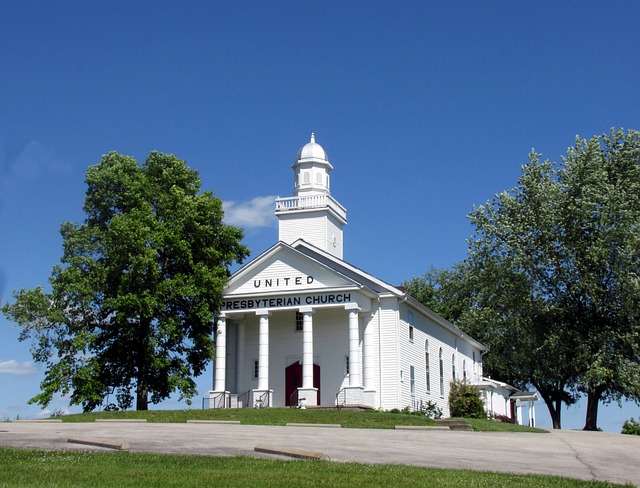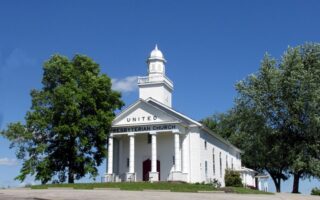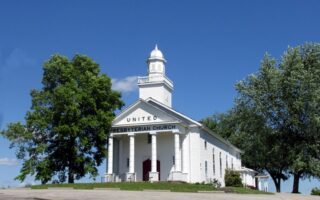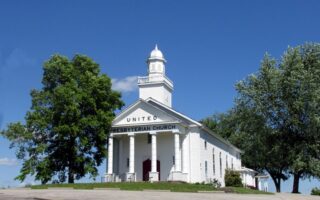Presbyterianism is a branch of Protestant Christianity that originated in Scotland during the 16th century. The term “Presbyterian” is derived from the Greek word “presbyteros,” which means “elder.” This name reflects the unique governance structure of Presbyterian churches, where authority is vested in a body of elected elders. The Presbyterian Church emphasizes the role of these elders in decision-making and the overall organization of the church.
Table of Contents
Origins and History of the Presbyterian Church
Have you ever wondered why the Presbyterian Church is called Presbyterian? Well, let’s take a journey back in time to explore the origins and history of this fascinating denomination.
The Presbyterian Church traces its roots back to the Protestant Reformation in the 16th century. It was during this time that a man named John Calvin emerged as a prominent figure in the movement. Calvin’s teachings and ideas had a profound impact on the development of the Presbyterian Church.
The term “Presbyterian” actually comes from the Greek word “presbyteros,” which means “elder.” This term was used in the early Christian church to refer to those who held positions of leadership and authority. In the Presbyterian Church, the concept of elders playing a significant role in the governance of the church is central.
The Presbyterian Church as we know it today began to take shape in Scotland in the 16th century. The Scottish Reformation, led by figures such as John Knox, sought to reform the church in Scotland and bring it more in line with Calvin’s teachings. The Presbyterian form of church government was seen as a way to ensure that the church was governed by a group of elders rather than a single individual.
One of the key documents that shaped the Presbyterian Church was the Westminster Confession of Faith. This confession, which was adopted by the Church of Scotland in the 17th century, outlined the beliefs and practices of the church. It became a foundational document for Presbyterian churches around the world.
Over the centuries, the Presbyterian Church spread beyond Scotland and became a global movement. Presbyterian missionaries traveled to various parts of the world, including North America, where they established churches and spread the Presbyterian faith.
In the United States, the Presbyterian Church has a rich history that dates back to the colonial era. Many of the early settlers in America were Presbyterian, and they played a significant role in shaping the religious landscape of the country. The Presbyterian Church in the United States of America (PCUSA) was officially formed in 1789 and has since become one of the largest Protestant denominations in the country.
Today, the Presbyterian Church continues to be known for its emphasis on the authority of Scripture, the importance of education, and the involvement of elders in church governance. It is a denomination that values both tradition and innovation, seeking to faithfully follow Christ in a changing world.
So, the next time you hear the term “Presbyterian,” you’ll know that it refers to a rich history and a unique form of church government. From its origins in Scotland to its global presence today, the Presbyterian Church has left an indelible mark on the world of Christianity. Whether you’re a Presbyterian or simply curious about the denomination, there’s no denying the significance and impact of this vibrant faith community.
Theological Beliefs and Practices of Presbyterians

Have you ever wondered why Presbyterians are called Presbyterians? Well, let’s dive into the theological beliefs and practices of this denomination to find out!
Presbyterians are a branch of Protestant Christianity that originated in Scotland during the 16th century. The name “Presbyterian” comes from the Greek word “presbyteros,” which means “elder.” This term reflects the unique structure and governance of Presbyterian churches.
One of the key theological beliefs of Presbyterians is the concept of predestination. This doctrine, which was popularized by the Protestant reformer John Calvin, states that God has already determined who will be saved and who will not. This belief is based on the idea that God is all-knowing and all-powerful, and therefore has complete control over human destiny.
However, Presbyterians also believe in the importance of human responsibility. They believe that while God has predestined certain individuals for salvation, humans still have the freedom to make choices and are accountable for their actions. This tension between divine sovereignty and human responsibility is a central aspect of Presbyterian theology.
In terms of worship practices, Presbyterians place a strong emphasis on the Bible. They believe that the Bible is the inspired word of God and the ultimate authority for faith and practice. This belief is reflected in their worship services, which typically include the reading and preaching of Scripture.
Another important aspect of Presbyterian worship is the celebration of the sacraments. Presbyterians recognize two sacraments: baptism and the Lord’s Supper. Baptism is seen as a sign of initiation into the Christian community, while the Lord’s Supper is a commemoration of Jesus’ last supper with his disciples. These sacraments are considered to be outward signs of God’s grace and are central to the spiritual life of Presbyterians.
In terms of church governance, Presbyterians have a representative system. Each local congregation is governed by a group of elders, who are elected by the members of the church. These elders, along with ministers, form the governing body of the denomination, known as the presbytery. This system ensures that decisions are made collectively and that the voices of all members are heard.
Presbyterians also have a strong tradition of social justice and community involvement. They believe in the importance of caring for the marginalized and working towards a more just society. This commitment to social justice is rooted in their understanding of the biblical call to love and serve others.
In conclusion, the name “Presbyterian” reflects the unique structure and governance of this denomination. Presbyterians believe in the concept of predestination, while also emphasizing human responsibility. They place a strong emphasis on the Bible and the sacraments in their worship practices. Their church governance is based on a representative system, and they have a strong tradition of social justice. So, the next time you hear the term “Presbyterian,” you’ll know a little bit more about what it means and what this denomination stands for.
Presbyterian Church Governance and Structure
Have you ever wondered why the Presbyterian Church is called Presbyterian? Well, let me tell you the story behind this unique name. The term “Presbyterian” actually comes from the Greek word “presbyteros,” which means “elder.” This name reflects the unique governance and structure of the Presbyterian Church.
In the Presbyterian Church, decisions are made by a group of elders who are elected by the congregation. These elders, also known as presbyters, are responsible for the spiritual leadership and guidance of the church. They work together to make important decisions regarding the church’s direction, policies, and practices.
The idea of a church governed by elders can be traced back to the early Christian church. In the New Testament, we see references to the role of elders in the church. These elders were respected leaders who provided guidance and oversight to the early Christian communities.
The Presbyterian Church, as we know it today, traces its roots back to the Protestant Reformation in the 16th century. One of the key figures of the Reformation was John Calvin, a French theologian who played a significant role in shaping the Presbyterian Church.
Calvin believed in the importance of a church governed by elders. He saw this as a way to ensure that decisions were made collectively and that no one person had too much power. This idea of shared leadership and accountability resonated with many people, and it became a central tenet of the Presbyterian Church.
As the Presbyterian Church spread throughout Europe and eventually to the United States, the name “Presbyterian” became associated with this unique form of church governance. It served as a reminder of the church’s commitment to shared leadership and the importance of the role of elders.
Today, the Presbyterian Church continues to be governed by elders. Each congregation elects a group of elders who serve on the session, which is the governing body of the church. The session is responsible for making decisions on behalf of the congregation and providing spiritual leadership.
The Presbyterian Church also has a connectional structure, which means that individual congregations are part of a larger governing body. This larger body, known as the presbytery, consists of representatives from each congregation in a specific geographic area. The presbytery provides support, oversight, and accountability to the individual congregations.
This unique governance and structure of the Presbyterian Church sets it apart from other denominations. It emphasizes the importance of shared leadership, accountability, and the involvement of the congregation in decision-making processes.
So, the next time you hear the term “Presbyterian,” you’ll know that it refers to a church that values the role of elders and believes in the power of collective decision-making. It’s a name that reflects the rich history and unique structure of the Presbyterian Church.
Influence and Impact of Presbyterianism in Modern Society
Presbyterianism is a branch of Protestant Christianity that has had a significant influence and impact on modern society. But have you ever wondered why it is called Presbyterian? Let’s delve into the history and origins of this religious denomination to understand its name and its relevance in today’s world.
Presbyterianism traces its roots back to the 16th century Reformation movement led by John Calvin in Geneva, Switzerland. Calvin’s teachings emphasized the sovereignty of God and the authority of the Bible. His ideas spread throughout Europe, and many people were drawn to this new form of Christianity that emphasized a more democratic and participatory approach to church governance.
The term “Presbyterian” comes from the Greek word “presbyteros,” which means “elder.” In the early days of the Reformation, the church was governed by a group of elders who were elected by the congregation. These elders, along with the ministers, formed the ruling body of the church, known as the presbytery. This system of church governance, with its emphasis on the authority of the elders, gave rise to the name Presbyterian.
The influence of Presbyterianism can be seen in various aspects of modern society. One of the most significant contributions of Presbyterianism is its impact on democracy. The idea of electing elders to govern the church was revolutionary at the time and laid the foundation for the democratic principles that we cherish today. The concept of representative government, where leaders are chosen by the people, can be traced back to the Presbyterian model of church governance.
Presbyterianism also played a crucial role in the development of education. Calvin believed that education was essential for all individuals, not just the clergy. He established schools and universities in Geneva, which became centers of learning and intellectual inquiry. This emphasis on education and the pursuit of knowledge has had a lasting impact on modern society, with many Presbyterian-founded institutions still thriving today.
Another area where Presbyterianism has left its mark is social justice. The Presbyterian Church has a long history of advocating for the rights of the marginalized and oppressed. From the abolitionist movement in the 19th century to the civil rights movement in the 20th century, Presbyterians have been at the forefront of fighting for equality and justice. This commitment to social justice continues to shape the values and actions of many Presbyterian congregations today.
In addition to its influence on democracy, education, and social justice, Presbyterianism has also made significant contributions to the arts and culture. Many renowned writers, musicians, and artists have been influenced by their Presbyterian upbringing or affiliation. The emphasis on intellectual inquiry and the pursuit of truth has inspired countless individuals to explore their creativity and express themselves through various artistic mediums.
In conclusion, Presbyterianism has had a profound influence and impact on modern society. Its name, derived from the Greek word for “elder,” reflects its unique system of church governance. From its contributions to democracy, education, social justice, and the arts, Presbyterianism continues to shape and enrich our world today. So the next time you hear the term “Presbyterian,” remember its rich history and the lasting legacy it has left on our society.
Conclusion
The term “Presbyterian” is derived from the Greek word “presbyteros,” which means “elder.” It refers to the form of church government in which elders play a significant role in decision-making and leadership. This term was adopted by the Protestant Reformed churches in the 16th century, particularly in Scotland, where the Presbyterian Church emerged as a distinct denomination. The name “Presbyterian” reflects the emphasis on the role of elders in governing the church.



